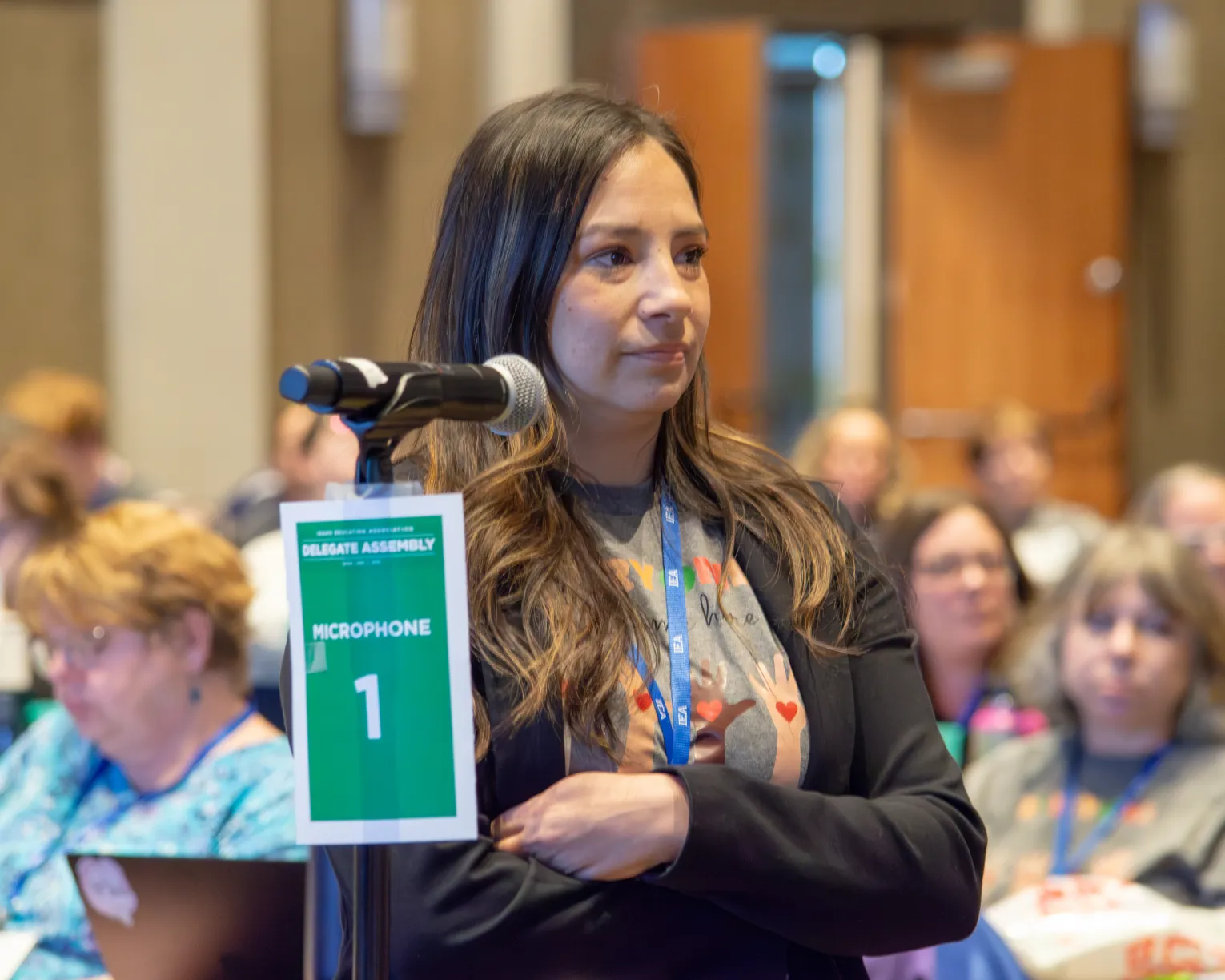Published: November 2025
STEP 2: CHOOSE YOUR ACTION
When you contact your elected officials, your personal story is your most powerful tool. Whether you’re emailing, calling, meeting, or posting online, connect the policy or issue to real experiences from your classroom, school, or community. Lawmakers hear statistics every day—but they remember stories that show how policies affect students and educators in real life.

Keep it concise—three short paragraphs is ideal. Introduce yourself and identify where you teach or live. Explain the issue briefly. End with a clear ask—what you want them to do or support.

Phone Call
Keep it short (under a minute) and friendly. Say who you are and where you live or work. State the issue and how it impacts your students or school. Ask the legislator to take a specific action or vote. Speak calmly, clearly, and from experience.

Meeting Request
When requesting or attending a meeting, be clear about what you want to discuss and why it matters to you. Bring 1–2 personal experiences that show the impact of policy decisions. Keep the conversation focused, respectful, and solution-oriented.

Submit Bill Testimony
Public testimony gives lawmakers a firsthand look at how education policies affect classrooms, students, and communities. When preparing testimony: introduce yourself and state where you teach or work; focus on one clear issue and how it impacts your students or school; end with a respectful, specific request for action.

Social Media Post
Public messages raise awareness and show lawmakers that their constituents are paying attention. Tag your legislators so they receive a notification. Use an authentic tone—write the way you speak to parents or colleagues. Avoid jargon or partisan language; focus on student impact and community needs.

Write a Letter
Handwritten or mailed letters stand out because they take effort and feel personal. Begin by introducing yourself and where you teach or live. Explain the issue clearly, then connect it to your students or community. One page or less is ideal. End with a clear, respectful ask for what you want your legislator to do.
Step 3: Report Your Action
Let us know you took action! It helps us track engagement and strengthen our advocacy.
Contribute to PACE
You can help elect common-sense legislators who will champion Idaho’s public schools by donating to the Political Action Committee for Education.

Take Action
The Idaho Education Association is committed to advocating for students and educators at the state, local and national level to ensure every student, regardless of zip code, has the best education possible.
